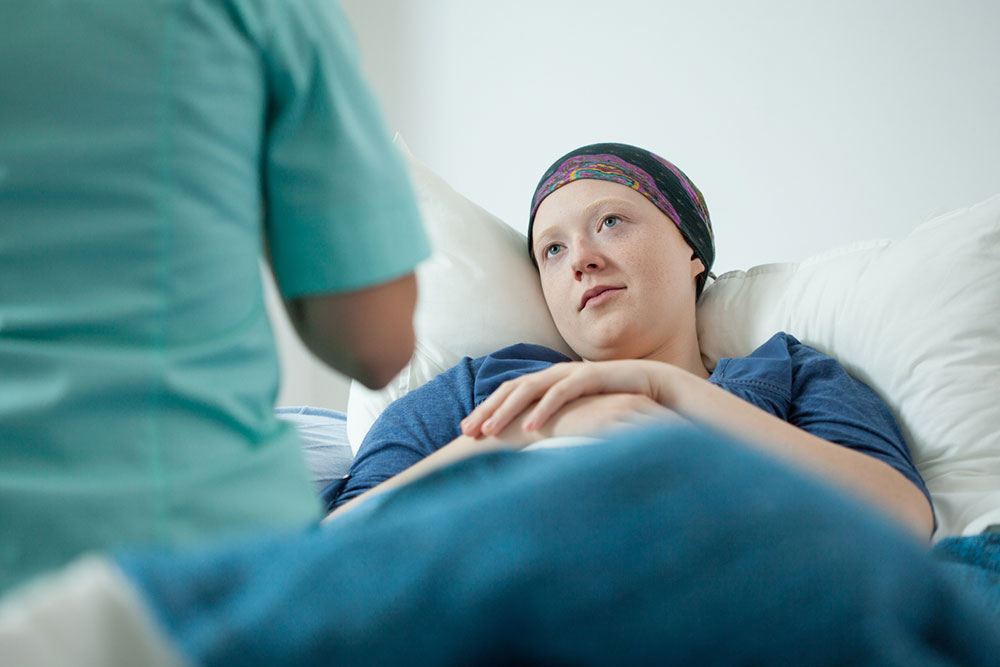Holistic Natural Strategies to Support Lung Cancer Treatment and Enhance Recovery
Explore comprehensive natural approaches that support lung cancer treatment, including acupuncture, aromatherapy, herbal supplements, and mind-body practices. These methods aim to improve symptom management, bolster immune health, and enhance quality of life alongside conventional therapies. A holistic strategy combining traditional and alternative methods may offer better overall outcomes for lung cancer patients.

Comprehensive Natural Approaches to Boost Lung Cancer Care
Diagnosing lung cancer presents significant challenges due to its complex and often elusive nature. Traditional treatment modalities such as surgery, chemotherapy, radiation therapy, and targeted drugs are the cornerstone of lung cancer management. However, these conventional methods frequently come with substantial side effects, impacting patients' quality of life and sometimes limiting treatment options. As a result, many patients are increasingly exploring complementary and alternative therapies aimed at supporting their overall health, reducing side effects, and potentially improving treatment outcomes. Incorporating natural therapies into lung cancer care is gaining recognition not as a replacement but as an adjunct to standard medical practices.
Understanding how these natural methods can assist involves recognizing their role in strengthening the immune system, alleviating symptoms, and promoting holistic well-being. The integration of traditional remedies like acupuncture, herbal medicine, and mind-body approaches with conventional treatments can provide a more comprehensive approach to lung cancer management. This article delves into various natural strategies that patients and healthcare providers are utilizing to support lung cancer treatment, improve symptom management, and enhance quality of life.
Acupuncture: Rooted in traditional Chinese medicine, acupuncture involves the insertion of ultra-fine needles into specific points on the body to stimulate energy flow and balance. Scientific studies suggest acupuncture can effectively reduce pain, particularly post-surgical discomfort, and mitigate common chemotherapy side effects such as nausea, vomiting, and fatigue. Patients report improved well-being and a better ability to cope with aggressive treatment regimens through regular acupuncture sessions. Additionally, acupuncture may assist in managing anxiety and enhance sleep quality, both of which are crucial during cancer therapy.
Aromatherapy: The use of essential oils in aromatherapy is another popular natural adjunct in lung cancer care. Certain essential oils, such as lavender, peppermint, and frankincense, are believed to possess properties that can stimulate mental clarity and reduce stress. Moreover, some research indicates that specific compounds found in particular oils might have anti-cancer effects, although more extensive clinical trials are needed. When used appropriately, aromatherapy can help alleviate anxiety, improve mood, and enhance relaxation, which are vital components in coping with cancer treatment.
Herbal Supplements: Herbal medicine offers a variety of natural options aimed at alleviating symptoms and boosting the immune system. Herbs like asparagus root, fu ling (poria mushroom), licorice root, and silver top root have traditional uses in Chinese medicine for supporting lung health, reducing inflammation, and strengthening the body's defenses. These herbs can be incorporated into teas, broths, or taken as supplements, but it's essential for patients to consult healthcare professionals before starting any herbal regimen, especially because of potential interactions with conventional cancer treatments.
Furthermore, additional natural interventions such as medical marijuana, meditation, and yoga are gaining popularity among lung cancer patients. Medical marijuana has been reported to help with pain relief and appetite stimulation, while meditation and yoga are effective in reducing stress, anxiety, and improving mental clarity. These practices contribute to a healthier mental state, which is integral to overall recovery and resilience during cancer treatment.
While natural therapies provide valuable support, they should always be employed as complementary strategies under the supervision of qualified healthcare providers. Their primary purpose is to enhance the effectiveness of conventional treatments, minimize side effects, and promote holistic health. Patients facing lung cancer are encouraged to have open dialogues with their medical teams to tailor a comprehensive treatment plan that incorporates both standard and natural therapies for the best possible outcomes.





